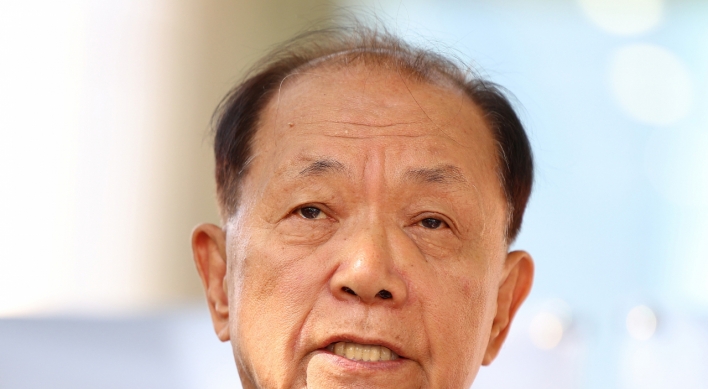Indonesia’s economic growth slowed last year to 5.02 percent from 5.58 percent in 2013, 6.3 percent in 2012 and 6.5 percent in 2011 weighed down by the global economic slump and weakening investment, the political noise during the election hurly burly and sluggish commodity export markets.
A note of caution though is in order here as the Central Statistics Agency did a rebasing of the GDP series for last year, adjusting the reference year to 2010, which is normally done to reflect changes in prices and composition of the economy.
The consolation, however, is that as the fourth quarter of last year booked an expansion of 5.01 percent, on-year basis, up slightly from 4.92 percent in the third quarter, the economic slowdown could have bottomed out and the outlook for the rest of this year will most likely be a gradual upward trend. Investment growth rose to 4.27 percent yoy in the fourth quarter from 4.03 percent in the previous quarter, but down to 4.12 percent for the whole of last year, as against 5.28 percent in 2013.
A recent survey by Bank Indonesia showed that lower fuel prices have also left consumers feeling more optimistic about the prospects for their incomes within the next six months, which may help boost household spending. On a yoy basis, consumer spending continued to be the main growth driver, offsetting the drag on exports.
Further boosting the role of consumer spending is the resurgent public spending which usually reaches its highest pace in the last quarter.
So what is in store for the economy? Looking ahead, a structural transformation drive is underway as President Joko “Jokowi” Widodo has pledged to achieve a growth target of 5.7 percent this year, better than analysts’ forecasts of 5.2-5.5 percent. This will be accomplished through cutting fuel subsidies and undertaking infrastructure projects to attract investment, including the upgrading of existing refineries, building power plants and improving connectivity across the vast archipelago.
The stimulus from infrastructure projects will start to kick in later in the year while initially growth will be hampered by increased capital equipment imports. Despite the deflation last month, we don’t expect BI will immediately lower its benchmark rate this month, given the imminent second bout of monetary tightening in the United States, and the likely surge in imports as a result of the rapid pace of infrastructure spending.
The downside risks ahead remain a strengthening U.S. economy that will entice investment from the international market, especially Indonesia, considered one of the most fragile of the emerging economies, and slowing growth in China, Indonesia’s largest trading partner.
But things could become even murkier if the president mishandles the National Police-Corruption Eradication Commission conflict, because what is at stake in this debacle is the fate of law enforcement, which is the key to the market economy and democracy.
The Jakarta Post
(Asia News Network)
A note of caution though is in order here as the Central Statistics Agency did a rebasing of the GDP series for last year, adjusting the reference year to 2010, which is normally done to reflect changes in prices and composition of the economy.
The consolation, however, is that as the fourth quarter of last year booked an expansion of 5.01 percent, on-year basis, up slightly from 4.92 percent in the third quarter, the economic slowdown could have bottomed out and the outlook for the rest of this year will most likely be a gradual upward trend. Investment growth rose to 4.27 percent yoy in the fourth quarter from 4.03 percent in the previous quarter, but down to 4.12 percent for the whole of last year, as against 5.28 percent in 2013.
A recent survey by Bank Indonesia showed that lower fuel prices have also left consumers feeling more optimistic about the prospects for their incomes within the next six months, which may help boost household spending. On a yoy basis, consumer spending continued to be the main growth driver, offsetting the drag on exports.
Further boosting the role of consumer spending is the resurgent public spending which usually reaches its highest pace in the last quarter.
So what is in store for the economy? Looking ahead, a structural transformation drive is underway as President Joko “Jokowi” Widodo has pledged to achieve a growth target of 5.7 percent this year, better than analysts’ forecasts of 5.2-5.5 percent. This will be accomplished through cutting fuel subsidies and undertaking infrastructure projects to attract investment, including the upgrading of existing refineries, building power plants and improving connectivity across the vast archipelago.
The stimulus from infrastructure projects will start to kick in later in the year while initially growth will be hampered by increased capital equipment imports. Despite the deflation last month, we don’t expect BI will immediately lower its benchmark rate this month, given the imminent second bout of monetary tightening in the United States, and the likely surge in imports as a result of the rapid pace of infrastructure spending.
The downside risks ahead remain a strengthening U.S. economy that will entice investment from the international market, especially Indonesia, considered one of the most fragile of the emerging economies, and slowing growth in China, Indonesia’s largest trading partner.
But things could become even murkier if the president mishandles the National Police-Corruption Eradication Commission conflict, because what is at stake in this debacle is the fate of law enforcement, which is the key to the market economy and democracy.
The Jakarta Post
(Asia News Network)
-
Articles by Korea Herald







![[KH Explains] No more 'Michael' at Kakao Games](http://res.heraldm.com/phpwas/restmb_idxmake.php?idx=644&simg=/content/image/2024/04/28/20240428050183_0.jpg&u=20240428180321)











![[Herald Interview] Mistakes turn into blessings in street performance, director says](http://res.heraldm.com/phpwas/restmb_idxmake.php?idx=652&simg=/content/image/2024/04/28/20240428050150_0.jpg&u=20240428174656)
